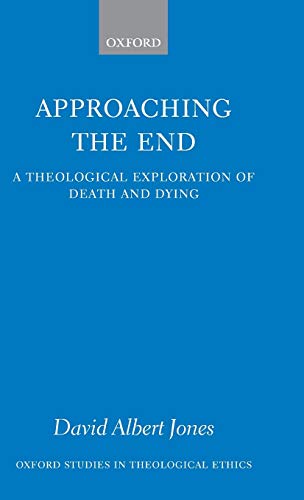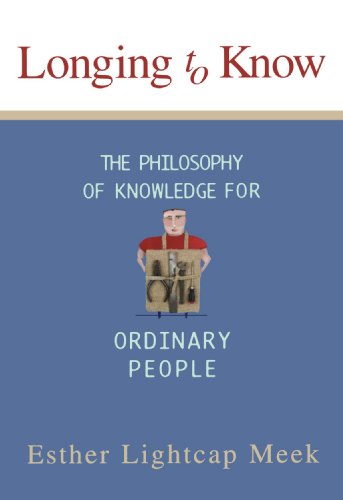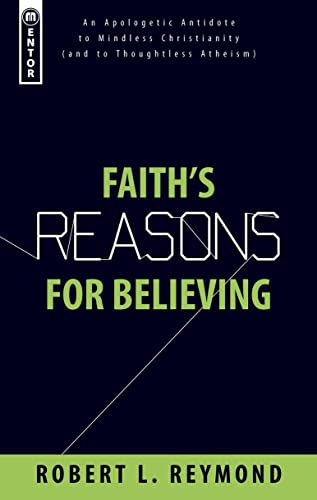Volume 33 - Issue 2
The Quandary of “Selective Invisibility”
By Bruce L. FieldsAbstract
Though his primary concern was how to persuade people from diverse backgrounds to embrace the gospel of Jesus Christ (1 Cor 9:12, 23), Paul, nonetheless, embodies a principle common to all who would provide leadership to a community comprised of a multiplicitous collection of rigid truth claims and behaviors. A leader must construct bridges both of understanding and of persuasion in such settings.
I have become all things to all people, that by all means I might save some.
—The Apostle Paul, 1 Corinthians 9:22b323
I am an invisible man. No, I am not a spook like those who haunted Edgar Allan Poe; nor am I one of your Hollywood-movie ectoplasms. I am a man of substance, of flesh and bone, fiber and liquids—and I might even be said to possess a mind. I am invisible, understand, simply because people refuse to see me. Like the bodiless heads you see sometimes in circus sideshows, it is as though I have been surrounded by mirrors of hard, distorting glass. When they approach me they see only my surroundings, themselves, or figments of their imagination—indeed, everything and anything except me.
—Ralph Ellison, Invisible Man324
Though his primary concern was how to persuade people from diverse backgrounds to embrace the gospel of Jesus Christ (1 Cor 9:12, 23), Paul, nonetheless, embodies a principle common to all who would provide leadership to a community comprised of a multiplicitous collection of rigid truth claims and behaviors. A leader must construct bridges both of understanding and of persuasion in such settings. Paul, however, does not want to engage in matters that “don’t count.”325 For him the gospel was central, and he would not become involved with anything that would hinder the persuasive power of the gospel. By implication, he shows something else foundational to effective leadership: core convictions. A leader must be proved to understand the views of others and to learn of them with a sensitive ear. In such a way, the power to persuade is enhanced. The leader, nevertheless, does not exercise a capacity to lead in a conviction vacuum.326 Just as in Paul’s example, listening to others does not inculcate a dismissal of what are core beliefs. David E. Garland correctly observes that Paul’s
accommodation has nothing to do with watering down the gospel message, soft-pedaling its ethical demands, or compromising its absolute monotheism. Paul never modified the message of Christ crucified to make it less of a scandal to Jews or less foolish to Greeks. The preacher of the changeless gospel could adapt himself, however, to changing audiences in seeking their ultimate welfare, their salvation.327
My immediate focus in this reflection is Senator Barack Obama, Democratic candidate for the presidency of the United States. There are relevant questions to ponder on the matter of the possibility of him becoming the first African American president of the United States and providing leadership for the diverse people groups that make up this nation.
Not least because I am an African American, I perceive that the commentary of Ellison has great relevance to this possible scenario. In terms of the story, to have the hope of balance in life, Invisible Man must declare and act in accordance with his own identity as a member of the black ethnicity. His invisibility is the product of no one seeing him, but seeing only someone else. As it relates to Senator Obama, I intend no claim suggesting that Obama personifies all that could be considered African American whereby we can easily measure levels of invisibility. What I am saying is that depending on the lenses through which people look at him, they may see only what they want to see. They may not see what they need to see. Some may not look at him at all. Must an African American have some degree of invisibility in order to succeed? Who, or what then, is this man, if that can be accurately determined?
What is at stake is identifying what constitutes this man who is in danger of being “invisible.” At this juncture, I will offer a general definition of being an African American. It is a matter of being a person of African descent, but it is also being a person affected by the totality of African American tradition and what is often labeled as the “African American experience.” I am not claiming to be knowledgeable of and in communion with all aspects of African American tradition and experience, nor am I claiming, as above, that Obama embodies or does not embody all such tradition and experience. My argument is much more modest particularly in reference to Senator Obama. I believe that some constituencies in the United States want to make “invisible” certain elements of what makes up African American totality, and it is this selective invisibility that must be in place if Obama is to be elected as the first African American president of the United States. Different elements must be “invisible” to those of a conservative orientation while others must be “invisible” to those of a liberal orientation. There are certain characteristics of being African American that must be hidden at times and revealed in others in order to construct a critical mass of votes to win the presidency. A relevant question in the midst of this tension is “What defines Barack Obama?”
In the context of African American tradition and experience, what then must be “invisible” to whom and why? What must be deemphasized to conservatives are those policies that do not reflect “traditional values,” namely, certain understandings of the Christian faith, family, a pro-life agenda, limited government, and protection of American interests. The liberal camp emphasizes more “openness” to certain understandings of the Christian faith,328 family (understood as undergoing some transition), the advancement of a woman’s right to choose, more involvement of government in the life of the public realms of the nation. The conservative camp is concerned about any solutions to the needs of the nation, as well as the needs of various communities within the nation, that do not focus on government as the major contributor to proposed solutions.
A major tension in walking the thin red line between the camps is that invisibility before either orientation may put Obama on a collision course with what it means to be an African American man, one who is affected and shaped by African American traditions and experience in the United States. For the sake both of brevity and for comparison in this piece, I will focus on one essential element of the African American experience: a rather conservative biblical tradition.
Conservatives and “Invisibility”
Conservatives may be bothered by some of senator Obama’s positions such as his understanding of the nature of interpreting the Constitution: “Ultimately, though, I have to side with Justice Breyer’s view of the Constitution—that it is not a static but rather a living document, and must be read in the context of an ever-changing world.”329 Conservatives who happen to be conservative Christians also may be troubled by his position of civil unions for gays as this in turn relates to how he reads Scripture:
I am not willing to have the state deny American citizens a civil union that confers equivalent rights on such basic matters as hospital visitation or health insurance coverage simply because the people they love are of the same sex—nor am I willing to accept a reading of the Bible that considers an obscure line in Romans to be more defining of Christianity than the Sermon on the Mount.330
I am aware of one issue in particular that has drawn a great deal of attention from the conservative elements of the media, namely, Obama’s perceived position on national security. Could the senator be considered, with the utmost of reliability, willing to protect the people and interests of the United States? Though the implications of Obama’s relationship with Dr. Jeremiah Wright, former pastor of Trinity United Church of Christ, are more complex than the single point I am going to discuss, concerns have been voiced about Obama’s lack of devotion to the United States. If such devotion can be legitimately questioned, this could then have significant ramifications on the matter of national security under Obama’s legitimately anticipated presidency. From firsthand experience, I became aware of conservative attempts to press a desired invisibility of African American tradition.
Some may want to interpret my subsequent points as an endorsement of Reverend Wright. It is not intended as such. It is only an observation arising from an opportunity I had earlier in this year to appear on the Fox channel cable program “Sean Hannity’s America.” My twenty-second appearance spoke of the nature of Black Theology. This was the duration of the material taken from fifteen minutes of dialogue on the subject in the local studio. The rest of the program involved an exploration of Reverend Wright’s “God damn America” sermon, his sympathy with Black Theology, and his sympathy (believed to be linked through Black Theology) to Marxist regimes in South and Central America. Reverend Wright, mentor to Barack Obama, condemned the United States, and this was enough to begin to challenge Obama’s capacity to be a strong protector of the American people.
In African American tradition, both religious and secular, there has always been a particular brand of anti-Americanism. One does not have to dwell on connections with Marxist regimes to find it. It is not a blanket curse of the United States; it involves a reaction against a particular caricature of the United States. That caricature is the view entertained by some in the past and in the present, namely, that the nobility and power of the country is pure, without blemish, whereby all that the United States has done and does, is right. In the African American experience, we can find condemning voices like David Walker (1875–1930):
I hope that the Americans may hear, but I am afraid that they done us so much injury, and are so firm in the belief that our Creator made us to be an inheritance to them forever, that their hearts will be hardened, so that their destruction may be sure.—This language, perhaps is too harsh for the American’s delicate ears. But Oh Americans! Americans! I warn you in the name of the Lord, (whether you will hear, or forbear,) to repent and reform, or you are ruined!!!!!! Do you think that our blood is hidden from the Lord, because you can hide it from the rest of the world by sending out missionaries, and by your charitable deeds to the Greeks, Irish &c?331
Though he is not speaking from a Christian tradition, but from the context of the Muslim faith, consider another example from Malcolm X (1925–65):
Before your pride causes you to harden your heart and further close your ears, and before your ignorance provokes laughter, search the Christian Scriptures. Search even the histories of other nations that sat in the same positions of wealth, power, and authority that these white Americans now hold . . . and see what God did to them. If God’s unchanging laws of justice caught up with everyone of the slave empires of the past, how dare you think White America can escape the harvest of unjust seeds planted by her white forefathers against our black forefathers here in the land of slavery!332
The prophetic dimension of African American preaching and teaching can be interpreted as anti-American, but when handled properly, it is actually part of the pathway to true reconciliation. This tradition is not accidental to African American tradition and experience. Such an element does not legitimate perpetual resentment on the part of African Americans, nor does it legitimate our occasional failures as a people to achieve all we can be and do. It is simply something that is always there in the consciousness of the African American community, and there is still healing that needs to take place. Ignoring this persistent reality, however, does not advance needed healing either.
Liberals and “Invisibility”
Liberals prefer a two-way program of selective invisibility. When it is regarded as gaining a political advantage, they want people to remember that Barack Obama is an African American. When there is a danger of the arousal of racial discomfort, they want to remind people that he would be a president for all people, as if the influence of his background would just disappear. Obama would be well received in a political community that advances the role of government, as if the African American community “needs” government to survive and possibly prosper. The liberal wing would be discomforted by a message, also found among the honored in the African American community, of self-reliance and self-determination. Such a message would have to be rendered “invisible.”
I find it striking that a champion of a more independent African American community, Malcolm X, would dismiss the categories of “Republican” and “Democrat.” He would prefer terms used often in public discussions today, namely, “conservatives” and “liberals.” He certainly had nothing good to say about conservatives, but what is worthy of note is this comment about liberals:
The white liberal differs from the white conservative only in one way: the liberal is more deceitful than the conservative. The liberal is more hypocritical than the conservative. Both want power, but the white liberal is the one who has perfected the art of posing as the Negro’s friend and benefactor; and by winning the friendship, allegiance, and support of the Negro, the white liberal is able to use the Negro as a pawn or tool in this political “football game” that is constantly raging between the white liberals and white conservatives.333
This statement is, of course, extreme and should not be attributed to all people who consider themselves to be more liberal in their political orientation. There are multitudes of such people who have admirable intentions and actions, not only towards African Americans, but other minority communities in the United States. The statement does raise an interesting question in terms of what is needed to ultimately bring about African American empowerment and full, equal status in all spheres of American life.
The liberal wing tolerates a certain brand of religion. This is a matter of direct importance to the identity of African Americans. Religion is a matter permissible to the public servant’s private life, but it must not be seen as “intruding” into the public sphere. Religion must not be assessed as having a possible negative influence in the formulations of public policies and laws. This is a difficult dichotomy to maintain, at least traditionally, in the African American community, where religion and public stances on issues have had a long and mutually pervasive relationship. This returns us to a core question: What is core to Obama’s belief system that certainly has a theological fabric? Related to this question, however, is another question: What informs or defines his theological fabric? I ask the question in light of a statement he made in his book The Audacity of Hope: “This is not to say that I’m unanchored in my faith. There are some things that I’m absolutely sure about—the Golden Rule, the need to battle cruelty in all its forms, the value of love and charity, humility and grace.”334 I can engage only one issue here with the intent of considering his defining theological core that would give definition to these terms. This issue is his advocacy of a woman’s right to choose to terminate a pregnancy.
I can remember a time during the late sixties and early seventies when a major concern of numerous black radicals was the possibility of “black genocide.” One statement demonstrates the concern for black genocide:
The enslavement of black people from the very beginning of this country, the genocide practiced on the American Indians and the confining of the survivors on reservations, the savage lynching of thousands of black men and women, the dropping of atomic bombs on Hiroshima and Nagasaki, and now the cowardly massacre in Vietnam, all testify to the fact that toward people of color the racist power structure of America has but one policy: repression, genocide, terror, and the big stick.335
In subsequent years, much has been done to allay such fears among minorities, particularly African Americans, in the United States. Still, it is ironic that presently the U. S. Center of Disease Control reports that of the approximately 4,000 abortions that are performed daily in the United State, 35% of these procedures abort African American babies. African Americans make up 12% of the United States population and provide 35% of the abortions.336 Under the advocacy of “a woman’s right to choose,” Obama and many others are supporting self-genocide. If attempted during the days of the Panthers, the African American community supposedly would have fought desperately against such genocidal proportions.
Conclusion
As a prospective presidential candidate, Senator Obama must be able to appeal to many different people groups with their accompanying ideologies. He is presenting himself as one who would be able to accomplish this through a process of “selective invisibility.” He must present himself as an African American in a way that hides elements of its root characteristics and beliefs. This could have devastating effects on the African American community in the long run.
Forms of accommodation are essential for building needed levels of consensus. The Apostle Paul understood this, though he maintained core beliefs. The matter of core beliefs is so foundational in the matter of “seeing” Barack Obama. I believe that observing what he has done and is doing in the public sphere is the surest indicator of the theological informing system that resides behind his policies. As far as I can see, this informing system is something other than the biblically conservative tendencies of the traditional African American Church.
- Scripture quotations are from The Holy Bible, English Standard Version®, copyright © 2001 by Crossway Bibles, a publishing ministry of Good News Publishers. Used by permission. All rights reserved.
- Ralph Ellison, Invisible Man (1952; repr., New York: Random House, 1994), 3.
- Gordon D. Fee, The First Epistle to the Corinthians (NICNT; Grand Rapids: Eerdmans, 1987), 431.
- Anthony C. Thiselton alludes to this when he writes, “there are limits to what we should understand by ‘accommodation'” (The First Epistle to the Corinthians [NIGTC; Grand Rapids: Eerdmans, 2000], 706–7).
- David E. Garland, 1 Corinthians (BECNT; Grand Rapids: Baker, 2003), 435.
- I will not be able to delineate the similarities and dissimilarities on matters of the Christian faith here. At the risk of being dangerously simplistic, I would say that conservatives are more concerned about the sovereignty of God evident in the maintenance of the status quo as well as a great concern with the guardianship of orthodox confession. The more liberally orientated may be more open to truth being found in other religions with the Christian faith being “living” and thus capable of some metamorphosis.
- Barack Obama, The Audacity of Hope: Thoughts on Reclaiming the American Dream (New York: Crown, 2006), 90.
- Ibid., 222.
- David Walker, “Our Wretchedness in Consequence of the Preachers of Religion,” in African American Religious History: A Documentary Witness (ed. Milton C. Sernett; Durham: Duke University Press, 2001), 197–98.
- Malcolm X, “God’s Judgment of White America (The Chickens Come Home to Roost),” December 4, 1963; available at www.malcolm-x.org/speeches/spc_120463.htm# (accessed July 15, 2008).
- Ibid.
- Obama, The Audacity of Hope, 224.
- “Executive Mandate Number One Statement by the Minister of Defense, Delivered May 2, 1967, at Sacramento, California, State Capitol Building,” in Bobby Seale, Seize the Time (Baltimore: Black Classic Press, 1991), 162. Eldridge Cleaver demonstrates a similar concern: “The American racial problem can no longer be spoken of or solved in isolation. The relationship between the genocide in Vietnam and the smiles of the white man toward black Americans is a direct relationship. Once the white man solves his problem in the East he will then turn his fury again on the black people of American, his longtime punching bag” (Soul on Ice [New York: Dell, 1992], 149).
- John J. Raphael, “Silent No More: A Major Crisis in the African-American Community,” available at www.nbccongress.org/features/abortion_silent_no_more_01.asp Accessed 9/3/2008.
Bruce L. Fields
Bruce Fields is associate professor of biblical and systematic theology at Trinity Evangelical Divinity School in Deerfield, Illinois, where he has taught since 1988. He is the author of Introducing Black Theology: Three Crucial Questions for the Evangelical Church (Grand Rapids: Baker, 2001).
Other Articles in this Issue
The Ethnic Enemy—No Greek or Jew . . . Barbarian, Scythian: The Gospel and Ethnic Difference
by Keith FerdinandoWhatever 'globalisation' may be, it has been accompanied by insistent and sometimes violent affirmations of ethnic identity...
Despite a small flurry of attention over the past decade, Adolf Schlatter (1852–1938), Tübingen professor of New Testament and author of more than 440 written works, remains one of the most neglected yet illuminating theological voices of the past one hundred years...
Commentators have customarily interpreted Phil 2:12 as a reference to "working out" one's personal salvation...
Salvation History, Chronology, and Crisis:1 A Problem with Inclusivist Theology of Religions, Part 1
by Adam SparksA fundamental requirement in an inclusivist understanding of the relationship between Christianity and other religions is evidence of God's salvific activity outside of any knowledge of Christ...
n the lounge next to my office hang the portraits of a number of the founding faculty of my institution, Westminster Theological Seminary in Pennsylvania...






